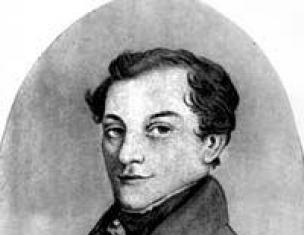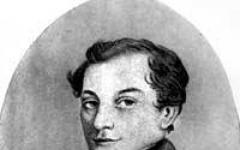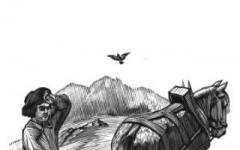Even though all of them have taken up Spanish, and already, melodiously, you know that in this wonderful romance move, hours have passed, the most important and newest ones.
Pretérito Perfecto
Pretérito Perfecto similar to the English hour Present perfect and to get used to it, since we are talking about the recent past, there is a great result for the current one. Tom should be victorious with such words, like “esta semana” (ts'go tyzhnya), “este any” (ts'go rock), “este mes” (ts'go misyatsya), “hoy” (s'ogodnі), “ya” (vzhe), encara (more) that іnshih. An hour to practice with the help of the word “haber” at the hour and the sacrament.
Hoy he fet la comida.
This year I got ready to go.
Esta semana no hemos tenido tiempo
We didn’t miss an hour.
Este año han comprado el piso.
They bought a booth for a stink.
¿Has puesto la mesa ya?
Do you have a curl (la) on the steel?
The principle’s awkward hour, ale varto brutal respect for the actions of the sacrament-viclyuchennya:
Nagaduє to us in English Past Perfect, which I call "before the last" hour. Mi vicoristovuєmo tsey hour, if one podіya became earlier for іnshu. An hour to pretend for the additional word “haber” in the form of Imperfecto that communion:
Me dijiste que ya habías limpiado.
Having said (a) me, now you (earlier) climbed (climbed).
Me informaron de que ya me haven dado la tarjeta.
They informed me, but they gave me a card earlier (earlier).
However, the most important parts are Pretérito Indefinido and Pretérito Imperfecto, or rather the difference between them. It's not a matter of English here, I want Past Simple for an hour, and I want Past Continuous for a friend, but don't wait!
Pretérito Indefinido
Pretérito Indefinido Vikoristovutsya, since we are talking about the result of the work in the already finished past, we will not tie it out of the day. At the Russian movement, the message is given to the words of a thorough image of the past hour (who is it?). I especially respect varto to the word “bootie”, because Russian wine doesn’t have a thorough eye, for that, when we say “Estuve en París la semana pasada” (I’ve been in Paris of the last time), then we live Indefinido, because mova idde about the endings of the hour. I want to see the triviality of yak, for example, in the phrase “Cuando estaba en París, hacía buen tiempo” (If I was in Paris, the weather was good), Imperfecto is alive.
Pretérito Indefinido vikoristirovanie with virases, tied, from the end we will end: “ayer” (vchora), “anteayer” (early morning), “hace dos días” (two days ago), “la semana pasada” (the last time), “el año pasado ”(torik) ta in.
Pretérito Indefinido to pretend for help until the end of the song:
To build, everything is much simpler ... protest, Pretérito Indefinido - one of the most recent hours of Spanish travel, as well as helpless children (and at the same time it’s evil to live from them!) At all times, by vines.
Ayer va fer frío.
It was cold at first.
El año pasado estuvimos en Madrid.
Past rock mi boules in Madrid.
Anteayer hablé con ellos.
I rozmovlyav from them.
Pretérito Imperfecto
We'll stay for an hour, we'll talk about what kind of year, - Pretérito Imperfecto... Wono vikoristovuєtsya for a description of the day, which was seen in the past regularly, for a little triviality in the past. The emphasis of what to say is itself on the triviality of the action, on the action, and not on the result. A whole hour at the bagatokh vipadkah vidpovidaє to the Russian incomplete viglyad at the last (who robiv?)
It is an hour to be victorious with words and virases, how to rotate regularity, - “todos los días” (day), “todas las mañanas” (vrance), “regularmente” (regularly) and in.
Imperfecto pretend to help singers finish to the core of the word.
When there are a lot of vinyatkіv, it’s not a lot of money - there are three:
Todos los días yo desayunaba en un café.
Shodnya snidav (la) at the cafe.
Antes ella iba a clases de yoga.
I used to go to yoga classes.
Estábamos muy contentos.
Mi buli is even more satisfied.
Let's see two butts with a problematic word bootie and think about which one is alive in one Imperfecto, and in another - Indefinido:
¿Cómo era la fiesta?
Yakim bulo holy?
What to say, check out you I will describe holy: chi buv vіn tedious chi cheer me too.
¿Com fue la fiesta?
Yakiy like to speak like the nobility, yak has passed holy, tobto. Sob you tell yom about the result is holy, your position is to the holy letter of the end.
At all, our description has passed hours Spanish language finished.
I ask you from our viclades!
Spanish numbers
Spanish translations
- Documentation Usi group
- ! Effortlessly wrong words of Spanish language. Table of information from the official dzherel!
- Review of all Spanish works. Top 60: usi formi
Spanish men
- List of Hispanic men, meaning that there are changes in the fallowness of the genus.
Spanish tables - who should you know?
- The table will be correct for quiet, how to get information visually. Exactly, systematized data is easier to remember.
- Spanish tables can be found at the same time, if you sleep and spend an hour trying to get to grips with the subtle grammar.
- Spanish tables are just as easy to use as cribs when you fold your sleep or prepare to them.
Spanish tables - skilki їх?
On our site we tried to pick up the best tables, so it will be easy for you to get started. Obviously, it’s impossible to get by with short knights from grammar; As the table of Spanish hours of the day, for example, is not frivolity, then the entire Spanish grammar in the tables is presented only in single handcuffs - easily, through unsolicitedness.
Is there a sufficient table for vivchenya of Spanish grammar?
Crazy, learn the Spanish grammar, learn the Spanish lessons. That and not all the rules can be observed in the form of tables. It is easier to read a simple spoken text.
Chi will popovnuvatimetsya tsey razdіl?
So, if you put it on that new table, be a weasel, send me to the address E-mail addresses to get used to the common spam robots. You have a lot of JavaScript inclusions to look at.... Your little brother will be at the table of everyone, which is easier to remember in the tables. Obviously, the table of hours of the Spanish movement is unlikely to be unique, but the field of activity is obov'yazkovo known, if you really befit the process of starting.
In the Spanish language, there are a lot of types of maybut, today that hours have passed. At the end of the day, you know everything about action, order, cleverness and cleverness. You know from the statti short information about the skin hour: yak will be, words-markers for the whole hour and if you get used to it, as well as for the skin hour, a tip of the butt is pointed.
Historical watches:, Pretérito Pluscuamperfecto, Pretérito Anterior, Imperfecto de Subjuntivo, Pluscuamperfecto de Subjuntivo,.
A word in Spanish language can be used in a number of ways: efficient, orderly, intelligent and intelligent. Vzagal, way - the whole category of the word is special, it turns its modality, but it’s the difference between being able to see it, or putting it to the sponsor (in the case of a punishable way).
It’s almost done in a way. Viyavleniy sposibє Newest in Spanish Movies. Wono means real diya When I’ve seen it in the past, I’ll see it all at once or it’s not transferring any minds. The wake-up methods include 8 hours, which can be carried out until the current day, maybut and last hours.
Presente de indicativo (simple hour)
Vikoristovuyutsya for a meaningful simple day, how to see in a given moment, as well as repeated events in real time. It is most common to be victorious with such indicators for an hour, yak (at a time), en este momento (at a given moment), siempre (depending), etc .:
Escribo relies on a mis parientes. - I often write to my relatives.
Siempre desayuna a las siete. - Win a dream about somiy.
It is also a simple hour to serve for the designated planned action in the future, when in the proposition, you will be prompted for the Maybut hour:
Llegamos pasado mañana. - We will come tomorrow.
Futuro simple / imperfecto
Beginning a simple stage, how to see at the Maybut hour, and repeat the process of Maybut. Indicators of the implantation of the given hour can be such words, yak mañana (tomorrow), pasado mañana (tomorrow), dentro de ... días (in ... days), la semana que viene (offensive), el año que viene (offensive fate), etc. .NS.:
Iremos en Italia a fines de octubre. - We will come to it until italy naprikіntsі zhovtnya.
Most often it’s possible to be victorious in the statements with the given modality for the definition of the value and the order:
Jorge tendrá unos treinta años. - Jorge, mabut, rock_v thirty.
¡Hija, lavarás la vajilla! - Donya, vimiєsh dishes!
Futuro perfecto
Get used to the meaningful work, as it ends before the moment at the ear of the ear of the day. Words that may sound for an hour: hasta (before), para (la semana) (before (offensive), і such:
Habré hablado español para el Año Nuevo. - Until the New Rock, I say it is Spanish.
La película habrá terminado, cuando venga. - Film end until that hour when you come.
Do often get used to modal meaning for meaning young people, young people, diy, in charge of the last:
Nos habremos visto en alguna parte. - You can, we are here with you.
El tren habrá arribado a la estación. - Drink, mabut, (already) arriving at the station.
Pretérito perfecto de indicativo
Turns around, scho seen at the last, ale maє vіdnoshennya until the present hour. Indicators for the whole hour can serve: esta semana (ts'go tyzhnya), este mes (ts'go misyatsya), hoy (s'ogodnі), nunca (nikoli), encara (dosi), últimamente (not long ago), ya (already) too much.
Hoy José ha ido a la escuela sin comer. - Christmas José pishov before school, he didn’t go to school.
Recientemente Enrique ha regresado de Barcelona. - Not long ago Enrike turned from Barcelona.
Pretérito indefinido (simple hour)
Vikoristovutsya for a simple flow, completed at the last, trivial flow from the set time period, when overwhelmed by some processes at the last. Indicators to serve: ayer (vchora), anteayer (zavchora), aquel dia (on that day), el mes pasado (last month), dos años vranci (two fate to that), etc .:
Cristóbal Colón descubrió América en 1492. - Christopher Columbus led America 1492 r.
Pretérito imperfecto de indicativo (hours passed)
Beginning a trivial, ale unfinished diyu, diyu, which is repeated in the past, and also a diyu, which has been seen abo has become on the last day. Indicators of such an hour will be to serve the offensive virazi: a menudo, frecuentemente (often), a veces (inodi), todos los días (school), por las madrugadas (las tardes) (vranci, (evenings)), cada vez que (shhorazu, if), siempre (zavzhi), de ordinario, de costumbre (zvvychay), de vez en cuando (inodі), cada any (día, mes) (kozen rіk (day, month)):
A las nueve veía la TV. - About 9 years ago, I was amazed at the TV show.
Por las madrugadas sus hijos salían de casa e iban a la escuela. - Vrantzi yogo children went to the house and went to school.
If mi hermano hacía los deberes, yo escuchaba la música. - Pokey my brother robbing lessons, I heard the music.
Pretérito pluscuamperfecto de indicativo (old hour)
On the way, the yak ended before the ear of the last day. In the midst of the propositions, the hour grows even trickier, most often it’s victorious for the weather hours and in the appendages.
Quan entramos en la sala de espectáculos, la actuación había empezado. - If we have gone to the hall for the gazes, the Vistava has already resigned.
Pretérito anterior de indicativo (past hour)
Bends diyu, yake ending one day before the ear of the last one. Most often it is possible to be victorious at the appendages and for the weather hours. Among the spoken ones, they are led by the following: apenas (leash, yak tilki), así que (so scho), yaksho (if), poti que (yak), en cuanto (yak tilki), en seguida que (at once, at that ) f moment), nareshty que (yak tilki), no bien (ice, yak tilki), tan pronto como (yak tilki), etc .:
Apenas me hube acostado, sonó el phone. - Yak only, I was lying at the lid, ringing the phone.
Futuro imperfecto de Subjuntivo
The Futuro imperfecto de Subjuntivo hour is victorious, if it is necessary to describe the unfinished situation, as if it was the moment of the Maybut hour. Movies of Spain do not have to spend an hour, but replace them with Presente de Subjuntivo. You can see the Incompleteness of the Maybutny hour at the literature, newspapers and documents.
Construction of the Presente de Subjuntivo watch: until the base of the day ends up in the first view: -are-ares-are-áremos-areis-aren; in the other and in the third view: -iere-ieres-iere-iéremos-iereis-ieren. For example: escribir (writing) - escribiere, escribieres, escribiere, escribiéremos, escribiereis, escribieren.
- Quise que comieres. - I want, do you like it.
- Las personas que no aceptaren estas reglas serán sancionadas. - People who don’t fraternize before respecting the rules, don’t feel guilty.
- Sea como fuere. - Well, it wouldn't be there.
Futuro Perfecto de Subjuntivo
The hour of Futuro Perfecto de Subjuntivo will describe the moment in the future, which will end before the moment in the future. It’s not an hour to get used to the development of the movement, or to the public, or to the artistic. Hourly Futuro Perfecto de Subjuntivo wonderfully volodya lawyers, lawyers, judges, people who are clearly linked to the documentation and laws.
Construction of Futuro Perfecto de Subjuntivo: an additional word haber at Futuro Imperfecto de Subjuntivo is a teacher of the word.
Modification of the word haber from Futuro Perfecto de Subjuntivo: hubiere, hubieres, hubiere, hubiéremos, hubiereis, hubieren.
- Si ningu candidate hubiere obtingut la confianza del Congreso, el Rey disolverá ambas Cámaras. “I’m a candidate who doesn’t deserve merit for the dovir Congress, the king of the form of offense of the chamber. (Constitution 1978 p.)
- Si algú no compliere con su deber de ciudadano, será castigado con arreglo al daño que hubiere producido. - As soon as Lyudin is not a visitor of his huge obedience, he will be punished all the way to the factory.
Penalty way
Transmission of sponukannya to dії. Wono is represented by two forms: Imperativo afirmativo and Imperativo negativo.
Imperativo afirmativo (the form of the mandated method) is vikoristovuyutsya for a turn is punishable by zrobiti:
¡Hablen ustedes español, por favor! - Speak, be weasel, spanish!
Imperativo negativo (the negative form of the order to the way) I follow the order not to rob anybody:
No trabajes los domingos. - Do not do it for a week.
Clever way
The clever way of borrowing is especially in the Spanish language. Bagato pochatkivtsiv often stuck with difficulties in the process. Vono get used to the appendages of speech at that vypadku, as the word of the head speech is vylovlyє prokhannya, order, pobazhannya, fence, emotsiy that feeling, thinking that judging, summing up that list.
A clever way of vikoristovu to be in chotiroh team-hour forms:
Presente de subjuntivo
I would like to tell you that it’s going to be there in one hour, or as soon as the message is in the head speech (the word of the head proposition is worth one hour of the current type):
Quiero que me dejen en paz. - I want to give me a chance.
Pretérito imperfecto de sunjuntivo
It means the way, the last one at one o'clock, when the message goes from the head speech (the word of the head proposition is worth one hour of the historical type). In general, the head proposition is to stand at the last hour.
Mi abuela quiso que yo hablara español. - My granny wanted, I’m talking in Spanish.
Yo tenia miedo que el salon de belleza estuviera cerrada. - I am afraid that the perukarnya is closed.
Me gustaría que hiciera en primavera. - I would like to, bula good weather canopies.
Te ordenó que te pusieras el abrigo marrón. - I have ordered to put on a brown cloak.
La desperté a las seis para que ella no perdiera el tren. - I її woke up about the second wound, but won’t go to the train.
Pretérito perfecto de subjuntivo
Transmission, scho diyu (in the last chi maybutny), perednu dii prince in the head speech, as it costs one hour of the current type. So that the word of the head speech must stand at the last hour and vkazuvat on those who are already seen. The construction of the Pretérito Perfecto de Subjuntivo: an additional word haber in the Presente de Subjuntivo with a meaningful word.
Es bueno que hayamos reservado los billetes. - Good, we have booked receipts.
Me alegra que hayas tingut buenas notas en el examen. - I am a little more radium, having gotten good marks from sleep.
Es posible que él haya venido. - Mozhlivo, vin priyshov ( having arrived).
No crec que hagin preparado el reglo para la fiesta. “I don’t think the stench made the present women sacred.”
Pretérito pluscuamperfecto de subjuntivo.
I will order the diyu, which is the front of the diy in the head speech, the additions in which cost in one hour of the historical type:
Ella no creía que habrías dicho esto. - Vona didn’t say anything.
Clever way
It means, that there can be no more singing minds, there are 2 parts: Potencial simple and Potencial perfecto.
Potencial simple
Turns unreal, albeit mozhlivu diyu: I am not satisfied with diyu, bazhan chi peredbachuvan in the current chi maybutny, diy, may be in the past, vichlivya that maybutnya play in the last hour:
Comeria un pedazo de tarta. - I z'ila used a piece of cake.
¿Podría decirme, de є la biblioteca? - Couldn't we say, de there is a library?
Potencial perfecto (compuesto)
I cast on the unrealistic that unhappy stage: diyu, bazhanu, or maybe in the past, I will transfer the diyu, which has gone up to іnshoiya last:
Habría ido al cine ayer pero no tuve diner. - I went bi vchora to the cinema, ale in me was not a penny.
Fernando no pasó el examen. Habría estudiado poco. - Fernando is not a sleepwalker. Mozhlivo, I didn’t do much.
The statistic is clearly visible ways in Spanish Movies, as well as the main hours of work in Spanish Movies.
In the Spanish language there are 4 ways:
1 - dіysny way in spansky movі (modo indicativo) - bend diyu (or її відсутніст) at the situation, if it doesn’t appear to be a call flow
2 – clever way in Spanish mov (modo subjuntivo) - I can’t help you
3 – Mandatory way in Spanish mov (modo imperativo) - the tse form of implantation of the word, which turns the will of the viglyad, prokhannya, please chee the order
4 – clever way in Spanish mov (modo potencial) - bend diyu, I can for singing minds
There are a lot of ways in the Spanish language, also the understanding, like the consummate of the word. Zaporuka is a grammatical category, as it bends in reciprocal terms and additives in the proposition. In Spanish Movies 2, make them: active and passive. Dysna outpost (voz activa) characterizes the situation, if the person is an active viconavtsy (diya is played with a pride). Passive camp(Voz pasiva) characterizes the situation, if the action is overpowering.
With the introduction of Spanish movies, I will have a lot of respect for the number of hours of living the words - more of them, less than Russian movies. We will try to get back to you from the statistics, as a part of my life in Spanish and in some kinds of stinks you will get used to it. Explain the simple and folding parts of the day in the Spanish Movies. For a simple part of a word, it becomes a path of the end of a word, for a foldable part for an additional word haber and a part of a word, which is seen.
For a day in Spanish mov (Presente)є Let's forgive and characterize the contribution of the same at a time.
Hours passed in the Spanish Movies Kilka.
After an hour in the Spanish Movies (Pretérito indefinido) - A simple hour, which characterizes the stage, when I see it, at the singing time of the hour (vchora, rik that, etc.).
Minuliy perfect hour in the Spanish mov (Pretérito perfecto (antepresente)є a folding hour і characterizes the way, which is too fast.
An hour passed by in the Spanish Movies (Pretérito imperfecto)є excuse me for an hour and not given the exact characteristics of the house and the ear.
An hour past, in Spanish mov (Pretérito anterior (antepretérito)- An hour has gone by, as I turn, I will finish the show in the past, the viconane without the middle before the last day in the past. It is practical not to get used to rozmovnіy іspanskoyu.
It's been an hour in Spanish (Pretérito pluscuamperfecto- An hour went by, which characterizes the stage that was seen in the last and before the last day. The testimony of the hour may be two-story, the last may be significant.
Maybutniy perfect hour in Spanish movi (Futuro perfecto) an hour characterizes the health in the Maybut and before the beginning of the Maybuttnya performance. Vzhivannya tsoh hour in a clean viglyadі saved the deprivation in the official documents. It’s the most frequent hour to be victorious for the meaning of the past hour, about which we don’t know for sure, but we might not be happy.
Maybutn_y nedoskonaliy hour in іspansk_y (Futuro imperfecto) Vikoristovutsya for a meaningful dey, yake can see the maybutny. Zvychay, vikoristovuyutsya with the furnishings for an hour (tomorrow, tomorrow is too bad.).
More detailed methods in Spanish Movies, as well as hours of activities in Spanish will be shown in the upcoming articles.
Watch in Spanish Movies table - for a simple form of submission of material to those who are required to provide a lot of nuances in a way, to improve the meaning of the word. In Spanish Movies іsnu kіlka vіdіv Maybutnіkh and passed hours, and wait an hour. Hours in the Spanish movable table are often directed in order to wonder how to change the word in that hour according to the guises and in the fallowness from the first view.
The statistics will destroy hours of the day deisny way (Modo indicativo)... Now, we can pick up the hours in the Spanish movable table, and also put the implantation of the day at the early hours.
The Danish Hour (Presente de indicativo)
Nini (Presente de indicativo) is a sign of a diyu, to be seen at the moment of promotion, or regularly, for a fact. The main markers, from which you can be victorious for an hour:
- at a time- at a time;
- en este momento- at the same moment and also at the same time.
Ara los chicos jugan al futbol. - Infected lads play football.
After an hour of misunderstanding (Pret? Rito imperfecto)
A short time passed (Pret? Rito imperfecto) to be victorious if a day is needed in the past, as it has not finished yet and will be returned from the same day at one or the same hour. Main markers:
- todos los d? as- skin day,
- por las madrugadas- shit, if,
- siempre- Make sure
- habitualmente- Yak rule.
Yak sal? a la calle, llov? a a c? ntaros. - If I am viyshov nadvir, ishov pouring planks.
Habitualmente yo compraba peri? dicos a las ocho. - I’ll call you up after buying newspapers about the eighth year.
The Finest Hour (Pret? Rito indefinido)
The last minute hour (Pret? Rito indefinido) will show the past stage, as it ended before the moment of catching up and didn’t lie in any kind of event. Main markers:
- ayer- vchora,
- el mes- last month,
- el a? o pasado- in the last rotsi.
Mi german lleg? fa un mes... - My brother arrived a month ago.
Lo supe ayer.- I know about the customer.
Maybutn_y uncomprehending hour (Futuro imperfecto)
Maybutn_y incomprehensible hour (Futuro imperfecto) will put on a d_yu, yaku ochіkuєmo at the maybutny. Main markers:
- ma? ana- Tomorrow,
- el mes que viene- in the offensive month,
- el a? o que viene- in the offensive rotsi.
Pronto vendr? n mis amigos e iremos al estadio. - It’s unbearable to come my comrades, and virally to the stadium.
Ma? Ana pedir? papel y todo. - I will ask for some papir and everything tomorrow.
Pret? Rito perfecto
Minuliy, very thoroughly hour (Pret? Rito perfecto) - to establish a victorious hour, follow the scheme: presente de indicativo words haver cantar, comer). The whole hour means the completion of the process, ale of the dressing from the very result of the process. Main markers:
- at a time- syogodnі,
- todav? a- shche,
- ya- Vzhe.
He escrito el art? culo y quiero le? rtelo. - Having written the article, I want to read it.
Todav? A no han visto nada. - They haven't smelled anything yet.
The hour is long past (Pret? Rito pluscuamperfecto)
It's been an hour long ago (Pret? Rito pluscuamperfecto) - to establish a victorious hour, follow the scheme: preterito imperfecto de indicativo words haver+ dієpricmetnik іdmіnuvanogo dієslovogo word ( cantar, comer). The day is over, as the bullet was made before the last day. It is most common to get used to the appendages:
Mi hermano me pregunt? cu? ndo se hab? an marchado nuestros amigos... - If friends have gone, feeding my brother.
El no era de Rome, pero ha venido a la capital muy nio.- Vin was not a native of Rome, but he came to the capital as a child.
An hour past (Pret? Rito anterior)
Minute hour (Pret? Rito anterior) - to establish a victorious hour, the scheme is to be used: preterito indefinido de indicativo of the word haber + the participle of the vidminuvanogo word (cantar, comer, rebre). The day is over, like a bullet before the last day. Main markers:
- apenas- ledve,
- en quant- yak tilki,
- yaksho- if (for that yak),
- despu? s que- for that yak.
En quant hubo llegado el tren, los viajeros bajaron del coche. - When the train arrived, the passengers drove out of the carriage.
Apenas hubo salido el sol, los turistas se pusieron en marcha. - Yak tilki the sun went down, the tourists went viral on the road.
Maybutnіy perfect hour (Futuro perfecto)
Maybutnіy thorough hour (Futuro perfecto) - to establish a victorious hour, a diagram is used: futuro imperfecto de indicativo words haver+ dієpricmetnik іdmіnuvanogo dієslovogo word ( cantar, comer). Futuro perfecto describes the stage, yaka can be seen at the Maybut and end before the first moment of the Maybut:
Para el quince de octubre habremos terminado este trabajo... - Mi is completed by the robot until the fifteenth day.
Quan vengas, ya habr? preperado el equipaje.- If you come, I will prepare my luggage.
As soon as you have violated the clock in the Spanish movable table and the move itself is independent from scratch, then it will be more easy to grow, so you can easily get lost in them. Tom sphatku vivchennya movi Radimo koristuvatisya help tutor intelligence the specifics of hours in Spanish Movies. And dal, mayuchi basic knowledge of movi, it is possible to continue vivchati mov independently.








